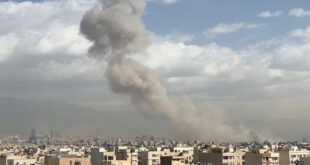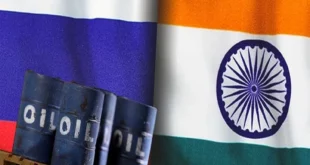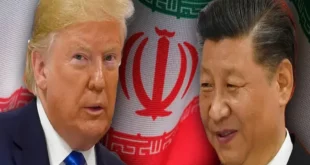Members of Iran’s parliament Tuesday chanted “death to Israel,” and they voted to increase the level of uranium enrichment to 20% and to halt U.N. nuclear inspections in reaction to the killing Friday of the country’s top nuclear scientist, Mohsen Fakhrizadeh. At the same time, Arab and Iranian media reported the killings of two more high-level Iranian military and intelligence officials within the past 48 hours.
Revolutionary Guard commander Muslim Shahdan was reportedly killed in a drone strike on his vehicle early Sunday at the Iraqi-Syrian border, according to Saudi-owned al-Arabiya TV.
The report added that several passengers riding with Shahdan were also killed when the vehicle, which was allegedly carrying explosives, was hit. It was not immediately clear where the vehicle was heading, but tensions along the Israeli-Syrian demarcation line are reported to be extremely tense.
Iranian opposition media, including the website Javanha, reported Monday that a high-level intelligence official, Habib Sawari, was killed in an armed attack on his home in Iran’s mostly-Arab Ahvaz region. The death was not confirmed by authorities.
Motives for killings
Former Iranian President Abolhassan Bani Sadr told VOA that he questions whether the country’s supreme leader, Ayatollah Ali Khamenei, will respond to the recent killings in a way that would set off any sort of military conflict.
He also noted that the country’s parliament is “not the final decision maker when it comes to suspending U.N. nuclear inspections or stepping up uranium enrichment.” Tuesday’s vote needs further action before it is finalized.
Bani Sadr argued that Israeli Prime Minister Benjamin Netanyahu, as well as Saudi Crown Prince Mohammed Bin Salman, may have domestic political reasons for wanting to push Iran into a possible conflict.
He also questions whether the outgoing administration of U.S. President Donald Trump may not be trying to hamstring the incoming Biden administration in its policies toward Tehran, especially if Iran pulls out of the 2015 nuclear accord known as the JCPOA with the G-5+1 countries.
Iranian government spokesman Ali Rabiei told journalists Tuesday that the killing of scientist Fakhrizadeh was a “psychological operation,” but that the perpetrators “would not achieve their goals.”
He said that the assassination was designed and implemented to disturb the psychological peace of Iranian society, in addition to creating confusion in Iran’s strategy and forcing it to play the enemy’s game.
Reuters news agency reported that the U.S. nuclear-powered aircraft carrier Nimitz entered the Persian Gulf last week, before the killing of Fakhrizadeh. U.S. media has also reported that B-52 bombers have been deployed to several bases in the Middle East.
 Eurasia Press & News
Eurasia Press & News



